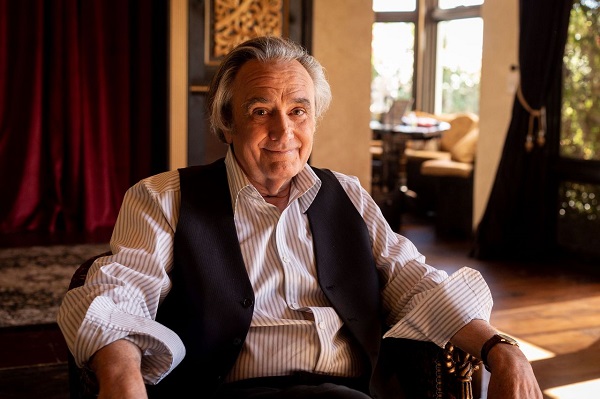
Danny Wolf’s Skin: A History of Nudity in Movies is an anthology documentary. It incorporates its version of ally feminism into the subject matter. Its subjects, as they need to, discuss social forces of the twentieth century. But they, mostly male, eventually get to the subject matter at hand – nudity. Sometimes critics like Amy Nicholson come in to have her say on onscreen nudity. These voices, as diverse as they can be. And they mostly successfully argue the connections between the landmark nude images and its effect on the audience.
Skin can only do so much when it comes to contemporaneous documentation. But its mostly male talking heads do their best in speaking for the nude actors in front of the camera. These are fellow directors, like Joe Dante, who know the names of these actors. They even know some of the female directors behind the camera, seeing these bodies through a female gaze.
Some of these directors are cognizant and make successful arguments about nudity on screen. Sometimes nudity is not the only factor that make the censors look more indignantly. That’s especially true during films like Midnight Cowboy that came out during the 1960s. Directors have found ways to circumvent the conservative censors and justify nudity in their films, reflecting its real world counterparts. Most film nudity is cis female. But Midnight Cowboy and films like it do their best bring equal opportunity nudity to the screen.
Eventually, archive footage of these landmark films come in. The thespians who did these scenes and films lending their voice to contextualize their past decisions. They discuss how they relate to the characters they play, often sexually curious and naive. That’s true in a wild retelling of Alice in Wonderland. These actresses also discuss their enthusiasm for the roles because they’re getting work, which is another can of worms.
Some audiences and critics are probably more sex positive than not. I express this concern since the other piece about this film is sex negative. That piece also disregards film nudity, which is disappointing. But I agree that there should at least be some voices of dissent here. That’s especially true when consent comes to the discussion, which this film doesn’t handle perfectly. Besides, there are actresses like Traci Lords who sometimes show their cynicism towards nudity. They talk about some of the characters they played existed as part of a formula. Wolf doesn’t expand on the exploitative side of nudity and, quite possibly, he prefers to minimize it.
Wolf got people like Dante and Richard Roeper to discuss other matters like sexuality. There is a part of me that wishes there were more seats in the table. That’s especially true when they’re discussing LGBT+ and racial matters. Roeper, as well as actresses like Mariel Hemingway, would make claims about some of those films. They apparently don’t always cater to the white male gaze but I would rather here an LGBT+ person say it. The LGBT+ part of the conversation is important since movies with that subject matter have the most memorable nude scenes. They reflect and represent reality more than scenes in straight films do.
Thankfully, those thespians recounting the risky roles they play are what saves this film. We often see nudity as perfection. But they, again, contextualize their artistic decisions and show how they subvert that perception. This film covers that visual trope from the pre-Code era to the swinging sixties. It’s been twenty years after the last sex comedy craze. Thespians like American Pie star Shannon Elizabeth’s contribution to the genre. It’s fun to remember those times when nudity was present in films. The documentary is mostly right in that nudity subvert our expectations and perceptions of the human body.
- Release Date: 8/18/2020


